Teaching and Learning
Curriculum
The Australian Curriculum is taught in our school.
We use the curriculum to:
- plan student learning,
- monitor and assess student progress,
- report student progress to parents: and
- support student wellbeing.
The curriculum learning areas are:
- English,
- Mathematics,
- Science,
- Humanities and social sciences – history, geography, economics and business, civics, and citizenship,
- The arts – dance, drama, music, media arts, visual arts,
- Technologies – design and technology, digital technologies,
- Health and physical education; and
- Languages.
Reporting procedures include parent/teacher/student discussions at the end of Term 1 and Term 3 (optional), as well as written reports twice per year.
ICT is integrated across the curriculum in all year levels with Interactive White Boards (Smartboards) installed in all classrooms. Students have access to computers and iPads in each building, with laptops provided 1:2 for year 4,5 and 6 students.
Specialist lessons include Health and Physical Education, Language and Science. Extra Curricula activities include Instrumental Music, Choir and SAPSASA Sport.
Our NAPLAN results can be seen on the My School website.
Specialist Programmes
Health and Physical Education (HPE)
In PE, students begin by developing both fine and gross motor skills through fundamental movement activities such as tag games and hand/foot-eye co-ordination sports. As they progress through the primary years, students become well equipped with more complex movement skills and gain an appreciation for sports theory, game sense, team building, and tactics. Additionally, Sports Day is a major part of our annual events calendar. Year 6 students have the honour of nominating to be a house captain where they assist and lead their team on the day and throughout the school year.
In Health, students dive into the topics of identity, feelings and emotions, relationships, bullying, mindfulness, food/drink nutrition, and body and mind growth. Through Health students gain deeper understandings of their own self, others, and their environment/surroundings. They identify differences and similarities that people have and share, and they create strong individual beliefs and values to support their physical, social, emotional, spiritual, and mental health.

Languages – Vietnamese
Xin Chào (Hello)
At our school we believe that learning a second language and its culture is something that all young learners can greatly benefit from. While language learning is an enriching experience for people of all ages, children are the ones who have the most to gain!
At Berri Primary School students from Reception to Year 6 study Vietnamese for 1 x 50-minute lesson per week.
Our Vietnamese programme is an exciting and engaging part of our curriculum, and our students are always busy learning new and interesting things about Vietnam, its language and culture.
Our Vietnamese programme is planned to incorporate both language and culture and is aligned with the Australian Curriculum. We cover a variety of topics throughout the year levels, making sure that each year builds upon the last, increasing the opportunity to remember and utilise prior learning. We not only the study Vietnamese language, but aspects of the history, geography and culture.
The students are introduced to songs, stories and traditional folk tales, games, and role play conversations as well aspects of contemporary life in Vietnam.
We believe the skills our students develop whilst learning a second language are life long and will stay with them regardless of the path their future learning takes.
Our classroom is a vibrant and welcoming space so please feel free to pop in and see us if you would like to find out more!
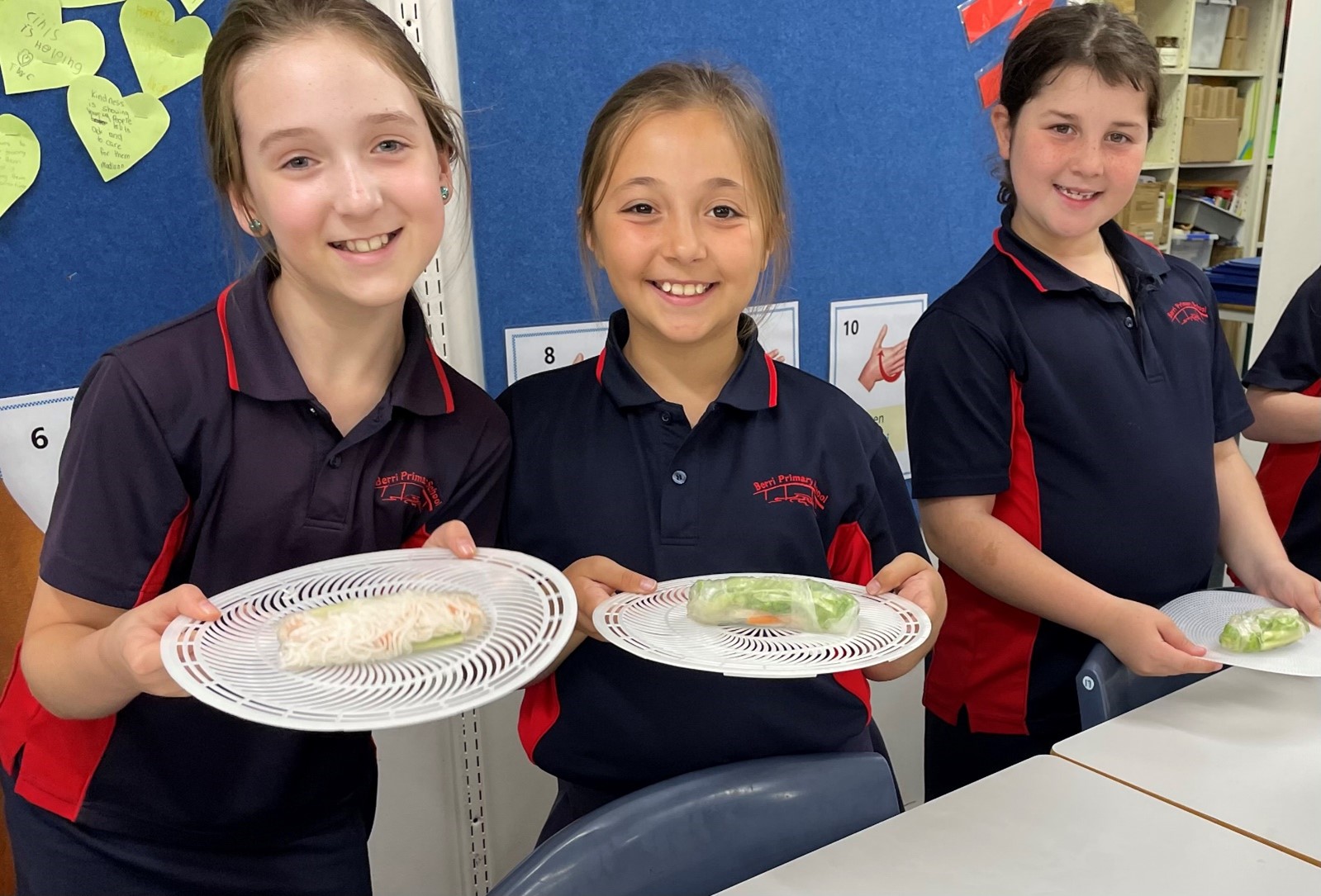
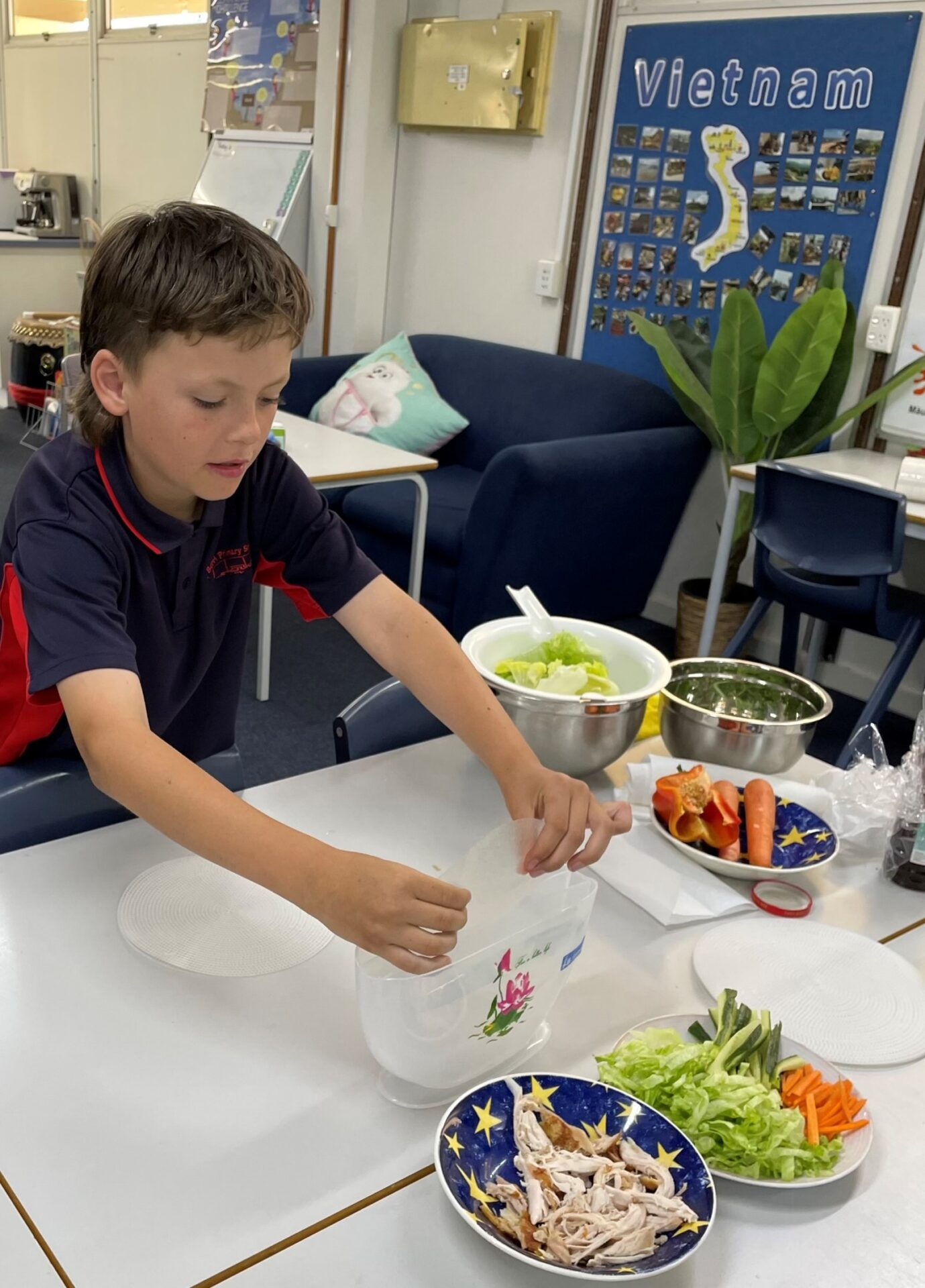
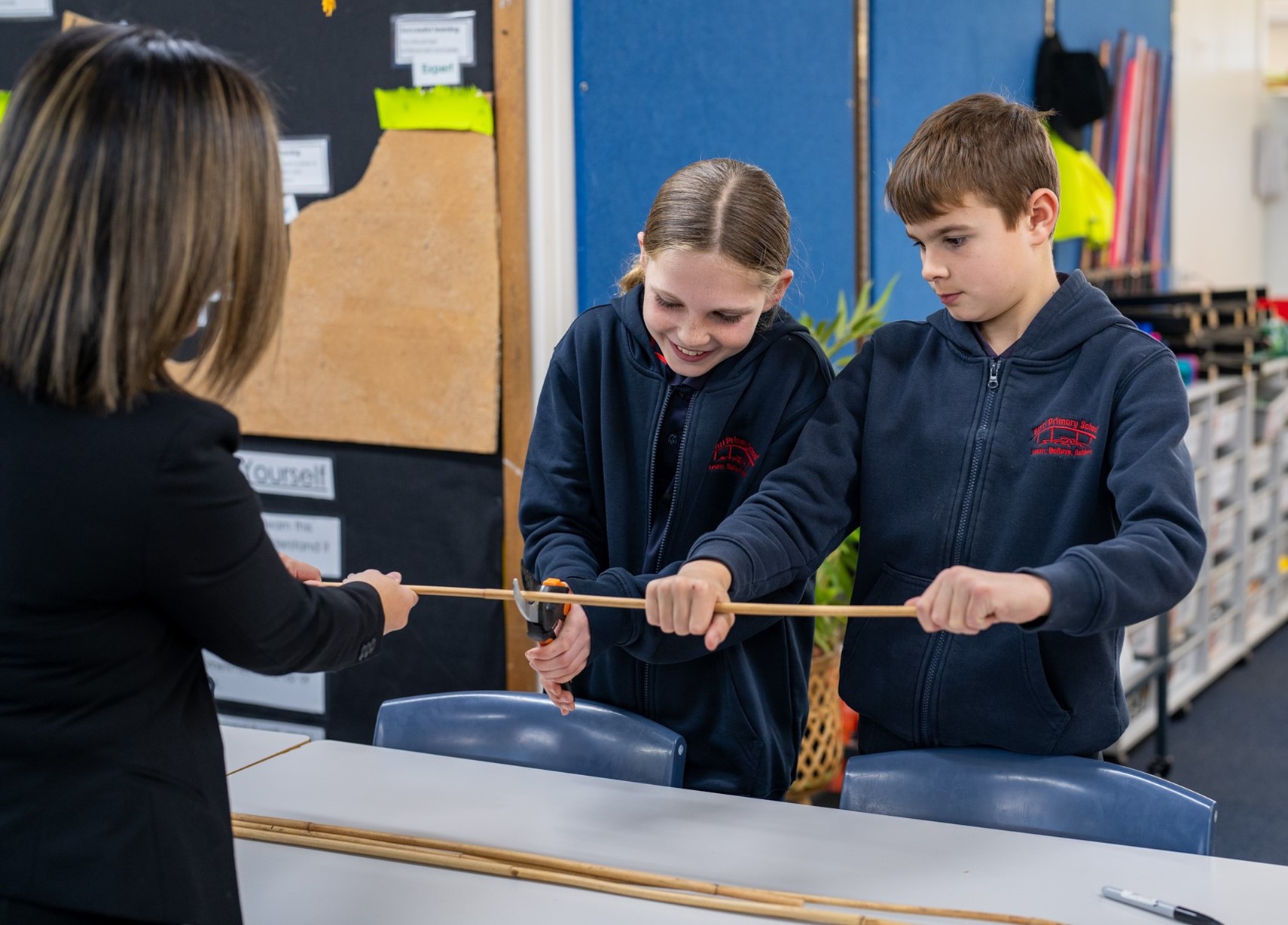
Science
POP – Bang – Sizzle!
At Berri, Science goes off with a BANG as students are engaged in interactive, hands-on experiments and activities to enrich and deepen their understanding of various scientific concepts. Students study Science as a specialised subject twice each week. Our Science programme endeavours to engage students through the use of a Launch, Inquire, Act Framework which helps students make connections to the world around them, anchor their learning, design investigations and communicate effectively.
We aim for students to develop an interest in Science as a means of expanding their curiosity and willingness to explore, ask questions about and speculate on the changing world in which they live.
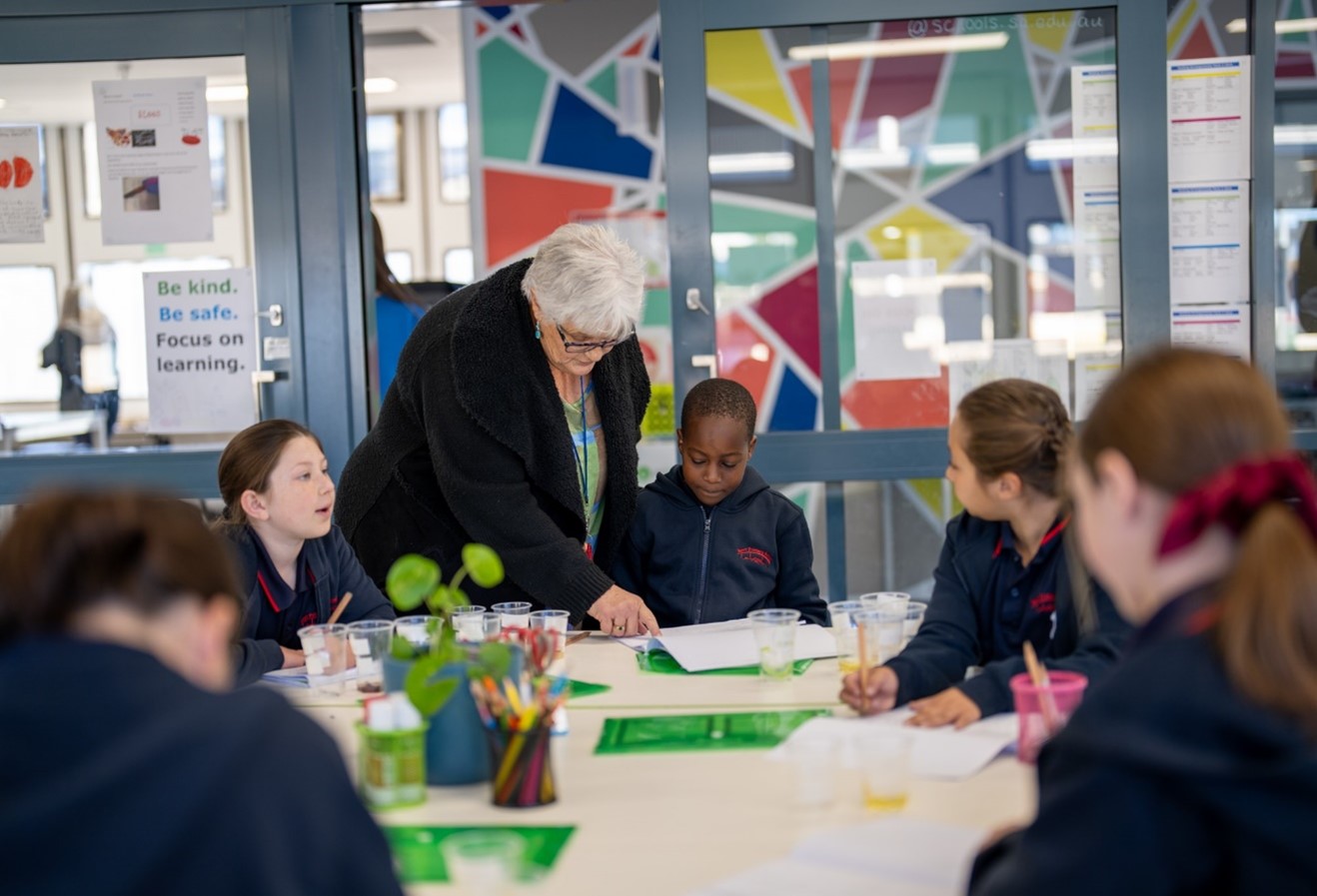
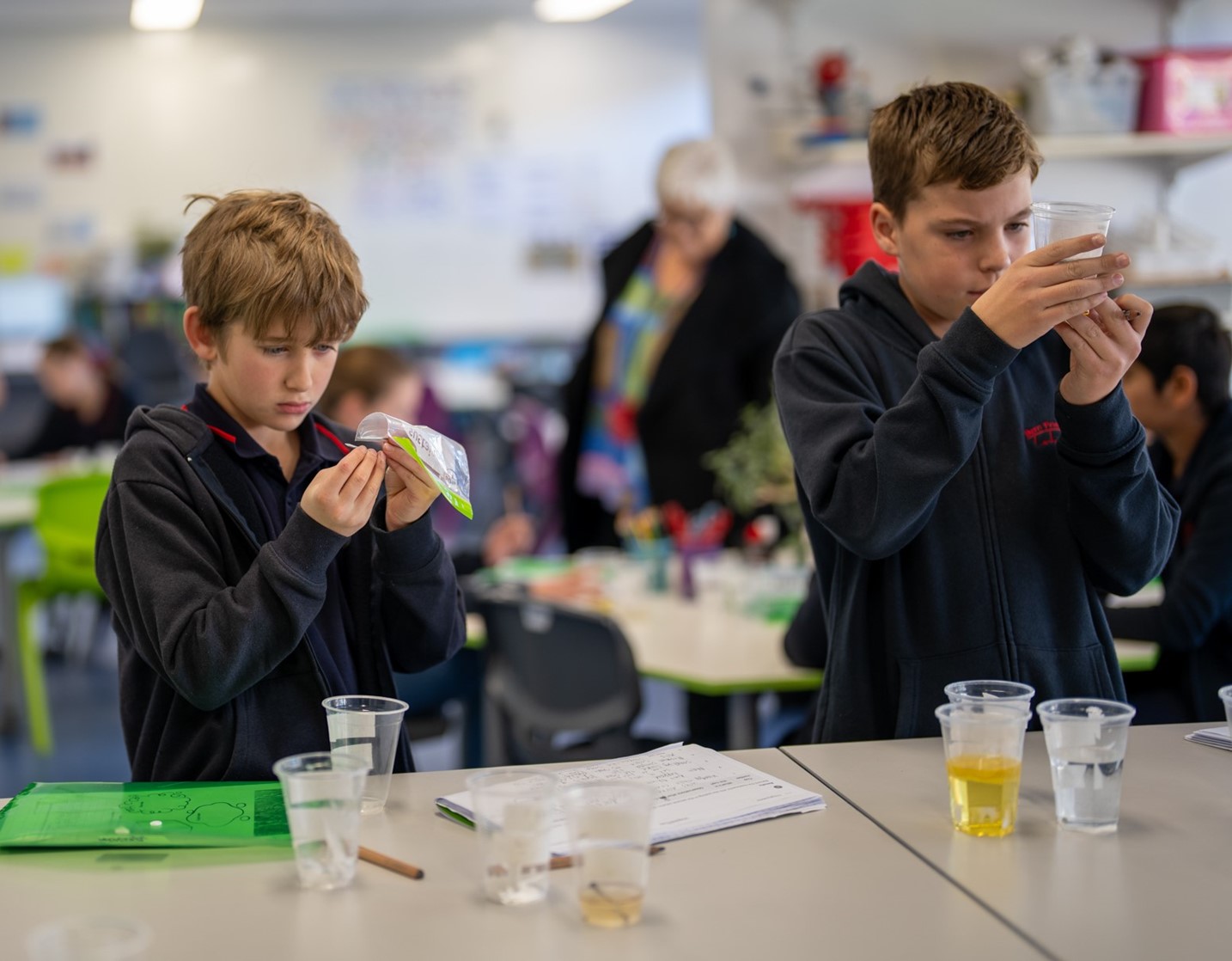
Extra Curricula at Berri Primary School
CHOIR
Choir at Berri Primary School is open to all year 4, 5 and 6 children who have a love of singing. We rehearse during school time once a week and extra time is available to students who would like a bit of extra practice one morning each week before school. Children have the opportunity to audition to be a soloist, or host and showcase their talents, if successful. At Berri Primary School we currently have the largest choir in the Riverland with 35 students. The choir performs regularly at school assemblies, and also at community events, like the Berri Carols, upon invitation. All of this culminates in a final performance at the Chaffey Theatre in August, singing with other choirs from across the district.
INSTRUMENTAL MUSIC
Instrumental music education in SA government schools is organised by an education department program called Instrumental Music (IM).
The Department for Education’s ‘Instrumental Music’ program provides free weekly lessons in the Riverland for brass, woodwind and rhythm instruments from year 4 onwards. Lessons are held at Berri Primary during school time on Thursdays and Fridays. The hire of instruments is supported by Berri Primary School with a contribution of $90 per year per student, or $80 for school card holders. This is an equitable arrangement, approved by Governing Council that recognises The Arts, as well as making SAPSASA Sports contributions. All instrumental students strive to be part of the Riverland Central Hub Concert Band, with sessions held at both Berri Primary and Barmera Primary Schools. Hub Band activities include concerts, workshops and tours. Current teachers are: Mr Sam Harrington on Rhythm, Mr Luke Heuzenroeder on Brass and Ms Andrea Roberts on Woodwind.”
SAPSASA
The Department for Education supports sport through policy development, curriculum initiatives, professional development opportunities, resources and a statewide sport program – School Sport SA.
Berri Primary School has a strong history in participation in Schools Sport SA (formerly SAPSASA).
School Sport SA runs a series of District Competitions, State Carnivals and State Championships, which the school nominates individuals and teams for competition. In some sports, competition is run in district championships. This can lead to state and interstate representation for successful students.
School Sport SA outlines the philosophy and rationale, together with the guiding principles underlying this broad-based program.
All competitions are run under the Associations strict Codes of Behaviour.
District selection fee is approximately $90 per student which will be paid by the school. All other associated expenses including travel and accommodation, are the responsibility of parents.
Students aged 12, 11 and 10 or turning 10 in year of competition, have the opportunity to participate in swimming, cross country and athletics carnivals. SAPSASA opportunities are competitive and children need to meet the qualifying requirements for their age group.
In Years 5 and 6, in addition to the three above carnivals, all students are eligible to trial for specific SAPSASA district sport teams such as netball, football, soccer, basketball, hockey, and cricket.
There are also additional opportunities for students with disabilities which are offered throughout the year and a Riverland Variety Games hosted for student in years 4 to 12.
For students selected to represent the region in Adelaide, the school will pay the $90 fee to assist families. ($80 for school card)
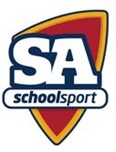
Intervention and inclusion at Berri PS
What is meant by ‘intervention’? The term intervention can be used to describe what teachers do every day when they anticipate and pre-emptively address students’ likely confusions, or plan to respond to these when they become apparent. Intervention is not a specific program: rather it is a framework for identifying learning gaps and minimising the number of students with learning difficulties. Some students may need more intensive support over differing periods of time. For other students, long term commitment to their learning growth may involve increasingly specialised and more intensive intervention. The level of an intervention response will reflect the degree and persistence of the learning gap being experienced by the student. A common and useful model for planning intervention is a multi-tiered system ‘Response to intervention’, where three ‘waves’ or ‘tiers’ of intervention are used. Beginning with high quality teaching instruction and systematic monitoring of all students, Berri Primary School uses this model. The next step involves early intervention for identified students via additional systematic instruction and the provision of evidence-informed intervention. Student Support Services may become involved with those students where there are continued concerns around their learning and wellbeing outcomes in the context of these broader school-based interventions.
Research suggests that approximately 80% of students will make satisfactory progress at their year level with quality wave 1 teaching, 15% may require some degree of wave 2 intervention, and 5% necessitate wave 3 intervention.
We provide learning experiences across 3 waves of intervention – proactive, targeted and intensive. This may involve working with individual and groups of children and young people, leaders, individuals or groups of educators. We work collaboratively with all staff to understand the level of intervention and how it relates to their practice in different contexts.
Proactive (Tier One)
Effective teaching for the whole class
Key features include:
- differentiated instruction
- adaptation of tasks
- continuously adjusting practice to address student misconceptions or to provide additional strategies to help them master a new skill.
Such wave 1 interventions may include:
- using a Learning Design approach and analysing assessment data to rethink and rework aspects of the curriculum, pedagogy and assessment to differentiate some learning tasks for some students, including a specific online individualised learning programme
- diagnostic screening to better understand, analyse and monitor growth/progress
- structuring teaching in more manageable episodes to ensure that the distinct elements of the learning program are explicitly addressed.
Targeted (Tier Two)
For small groups
For learners demonstrating slow progress, additional targeted or alternative learning experiences are required to support learning so that they receive increased opportunities to strengthen their knowledge and understanding and to practise skills. Very early intervention for children showing evidence of falling behind helps them to become more successful learners and minimises the number of referrals to special education services later on. Initially this intervention could be in the form of small group instruction for 10–15 minutes per day. Some students may require more time on a daily basis. Assigning students to these particular instructional groups is a typical example of wave 2 intervention. Sometimes this additional targeted support can occur in a withdrawal setting or within the context of regular classroom activities. At Berri Primary School Wave 2 intervention is supported for all classrooms, with a higher level of support for younger year levels. Teachers, support staff and the learning coordinator meet twice yearly where they use student achievement and progress data to inform a support programme documented for identified students.
Additional Tier Two support at Berri Primary School
Literacy
- Reception
Speech support advised by Department for Education Speech Pathologist
- Year One
Oral Language small group support
Students identified using Cubed Narrative Assessment
Programme delivered – Story Champs
- All year levels
Phonemic Awareness – Heggerty or David Kilpatrick ‘Equipped for Reading Success’
- All year levels
Phonics – OG (Orton Gillingham)
Maths
- Big Ideas in Number Diagnostic tests and activities
Intensive (Tier Three)
We provide highly specialised support and intervention at an individual, classroom and preschool or school level. This will often involve collaboration with a multi-disciplinary team and an interagency approach.
Services include:
- comprehensive analysis and assessment of factors contributing to complexity of issues
- collaborative problem-solving, goal-setting approaches to develop plans for preschools and schools, classrooms, children and/or families
- case coordination and a ‘team around the child’ approach where there are multiple service providers and agencies involved
- supporting the implementation of plans and their ongoing review, evaluation and adjustment.
- supporting schools to assess and manage risk in relation to children and young people with additional needs.
Frameworks and approaches
Although we offer a multi-disciplinary service, there are a number of common frameworks and practice approaches that underpin our professional practice. The following practice approaches are central to the way we deliver services in response to the varying needs of children and young people.
Evidenced-informed practice
Evidence-informed practice is the integration of best research evidence with professional skills in the context of the child’s and family’s values. Together with Student Support Services we will ensure the purposeful and systematic use of the best available evidence to inform the assessment of various options and related decision-making practice, program delivery and policy development.
Trauma-informed practice
Approximately one quarter of children have some form of adverse childhood experience heightened and/or prolonged stress can significantly impact a child’s neurobiological development, leaving them with a reactive and/or heightened state of arousal. This means they may find it difficult to concentrate, retain and recall new information, form and maintain relationships, and manage their emotions and behaviour. Aboriginal children may experience trauma through their own direct experience as well as secondary exposure (intergenerational trauma) and are at heightened risk of experiencing complex trauma (Australian Institute of Health and Welfare, 2013). Trauma-informed practice in schools relates to developing people’s understanding of how trauma and adverse childhood experience creates these cognitive, emotional and behavioural changes. Trauma informed practice is integral in helping children who have experienced adversity recover by providing them with a safe, predictable, structured and nurturing environment where they are able to learn and grow.
Holistic approach
A holistic approach considers the child and young person’s physical, personal, social, emotional and spiritual wellbeing as well as the cognitive aspects of learning.
Strengths-based approach
A strengths-based approach to working with children and young people acknowledges and identifies the strengths and abilities that children and young people have, and then works to build on these strengths to address any issues they face.
Positive Behaviour Support (PBS) Framework
This framework differs from traditional behaviour management approaches in that its ultimate goal is to enhance a student’s engagement with learning through the development of new skills, coinciding with a reduction of challenging behaviours. PBS is based on the assumption that all behaviour serves a function for the young person, even if that behaviour appears to others to be maladaptive or inappropriate. A functional behavioural assessment is conducted by developing hypotheses about the triggers and functions of a young person’s challenging behaviour. These hypotheses guide modifications to a student’s learning environment and intervention. The primary focus of PBS is ‘scaffolding’ student success by modifying their learning environment and developing their skills to meet their needs, as well as developing resilience.
Team around the child
The ‘team around the child’ (TAC) approach is a family-centred, strengths-based approach that promotes and supports effective collaborative working. It is underpinned by collaborative working relationships that bring together different disciplines, appreciation of the importance of family involvement and support, a more holistic view of the child, and a clearly defined case management approach to address complexity.
Pedagogy
Our skilled teachers, who are always on the pulse of best practice and educational research, ensure that each child is guided on a trajectory of learning towards deep understanding. We believe in using both explicit instruction to learn the fundamentals in English and Mathematics, as well as inquiry-based learning to ignite our students’ passion, supporting their growth into active, informed citizens.
Wellbeing
Information coming soon.
